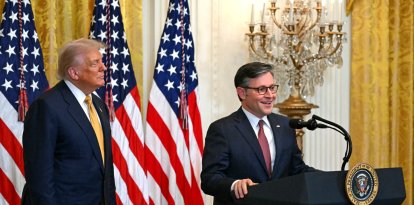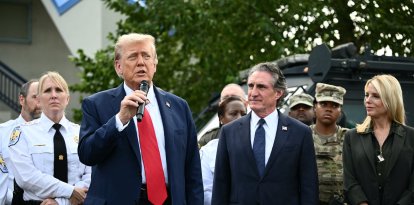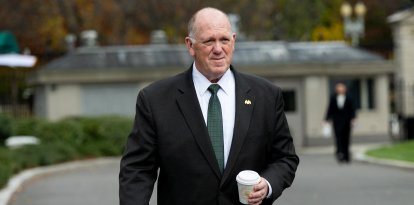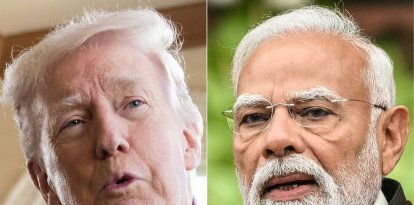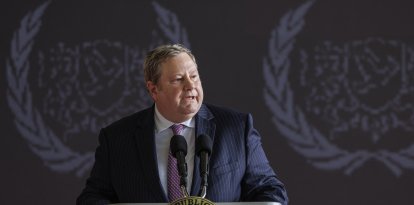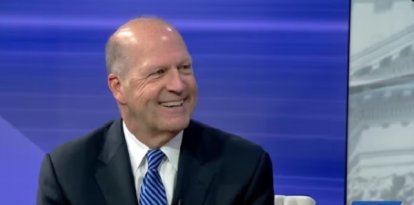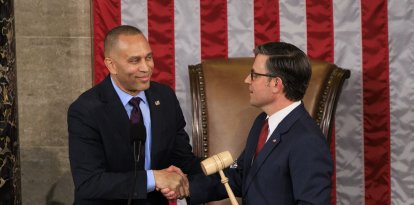July 4: What do Adams, Jefferson, Monroe and Coolidge have in common?
Four presidents have personal historical connections to Independence Day.

Calvin Coolidge/Wikimedia Commons
The Fourth of July is a day of celebration for all Americans. In addition to being the birthday of Voz Media the date commemorates the Declaration of Independencesigned in 1776 by the Second Continental Congress and the immortalization of the following paragraph written in the document: "We hold these truths to be self-evident, that all men are created equal, that they are endowed by their Creator of certain inalienable rights, among which are the right to Lifethe Freedom and the search for Happiness".
Every year, the incumbent president goes all out to celebrate the anniversary with events, fireworks and speeches. For example, Donald Trump traveled in 2020 to South Dakota to deliver his speech from Mount Rushmore, where the faces of George Washington, Thomas Jefferson, Theodore Roosevelt and Abraham Lincoln are displayed.
Throughout history, 46 people held the office of President of the United States and only 4 of them have any connection to the 4th of July.
Thomas Jefferson
The third president of the United States (1801-1809) is also one of the nine vice presidents who managed to climb that pending step and reach the Oval Office. One of the founding fathers, he was born in 1743 and graduated from college in two years with his sights set on law.
Although he was not an excellent orator, he always stood out for his skill with the pen, to such an extent that John Adams and Benjamin Franklin asked him to write the first version of the Declaration of Independence. In fact, he is the author of the aforementioned paragraph, so often quoted by historians and politicians, marking the path towards the idea that meant the birth of the United States. Given the times, Jefferson was a slave owner, as was his father, and even went so far as to lament that he had not lived up to the words he himself wrote.
His mandate was very consistent and was marked by the repeal of taxes and the reduction of the scope of the federal government, as well as the public debt. He also acquired the Louisiana Territory from France for $15 million and commissioned the expedition led by Meriwether Lewis and William Clark, who led the Corps of Discovery between 1803 and 1806.
Jefferson followed Washington's example and left the presidency after two terms, later moving to a house he christened Monticello, where he spent the last 17 years of his life. In his later years, he indulged in founding the University of Virginia and reviving his relationship with an old political adversary, John Adams.
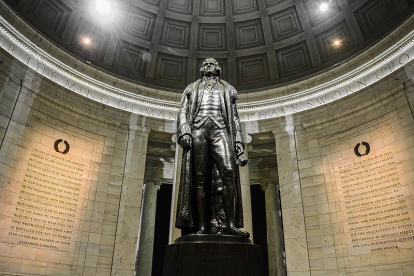
And what does this have to do with the 4th of July? The third president died in 1826 and on that date, at the age of 83. He said goodbye to the world 50 years after being part of the birth of his country.
Calvin Coolidge
Unlike Jefferson, Silent Cal was born on July 4, 1872 in the state of Vermont. According to his biographer, Amity Shales, he was a president noted for "inaction," for "doing as little as possible."
Calvin Coolidge came to national attention while governor of Massachusetts for his handling of the Boston Police Department strike of 1919. Claiming that there was no right to strike public safety, he fired all those involved and assembled a new Department from scratch.
Just months later, he was chosen to accompany Warren Harding on the presidential ticket, a ticket that won comfortably in the 1920 election. The Commander-in-Chief died unexpectedly in 1923, which likewise pushed the Republican into the White House.
His six-year presidency (he got a full term in 1924) is remembered for low unemployment, tax reductions and a discreet use of the presidential office. In addition, perhaps most remembered of his tenure, he left the federal budget at a smaller number than he found when he took office.
He declined to seek a second term in 1928 and in his later years wrote an autobiography and a weekly column christened Calvin Coolidge Says. He died on January 5, 1933 at the age of 60.
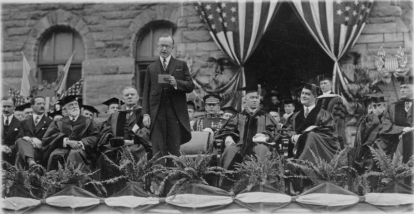
John Adams
Like Jefferson, one of his prominent political adversaries, he died on July 4, 1826. He was the first vice president in history and the second president of the United States. He is credited with a historic speech to defend independence, of which there is no historical transcript. As Jefferson recalled about that moment, his words moved everyone out of their seats.
With a reputation for his irascibility, he had many ideas and turns with the rest of the founding fathers, and even made many decisions despite the refusal of his cabinet. He convinced Congress to create the Navy and declined U.S. participation in the Napoleonic Wars, despite French insistence.
James Monroe
The last founding father to become president was perhaps one of the longest-serving politicians to reach the White House: he was instrumental in the Battle of Trenton still in the Revolutionary War and subsequently served as a delegate to Congress, senator from Virginia, ambassador to Great Britain, ambassador to France (he negotiated the purchase of New Orleans and Lousiana), two-term governor of Virginia, secretary of war, and secretary of state.
He became president in 1817 and served two terms, during which he negotiated with Great Britain the demilitarization of the northern Great Lakes, established a northern frontier, and laid the groundwork for the later acquisition of Oregon. In addition, he signed the Florida Purchase and signed the Missouri Compromise in 1920, ushering in the Era of Good Feelings, characterized by a sense of national unity and a lesser importance of political parties, compared to previous years.
He is best known for articulating the Monroe Doctrine Doctrine, first mentioned during the 1923 State of the Union. In short, he declared that the United States would not allow European powers to colonize the Western Hemisphere.
Like Jefferson and Adams, he died on July 4, 1831, at the age of 71.














